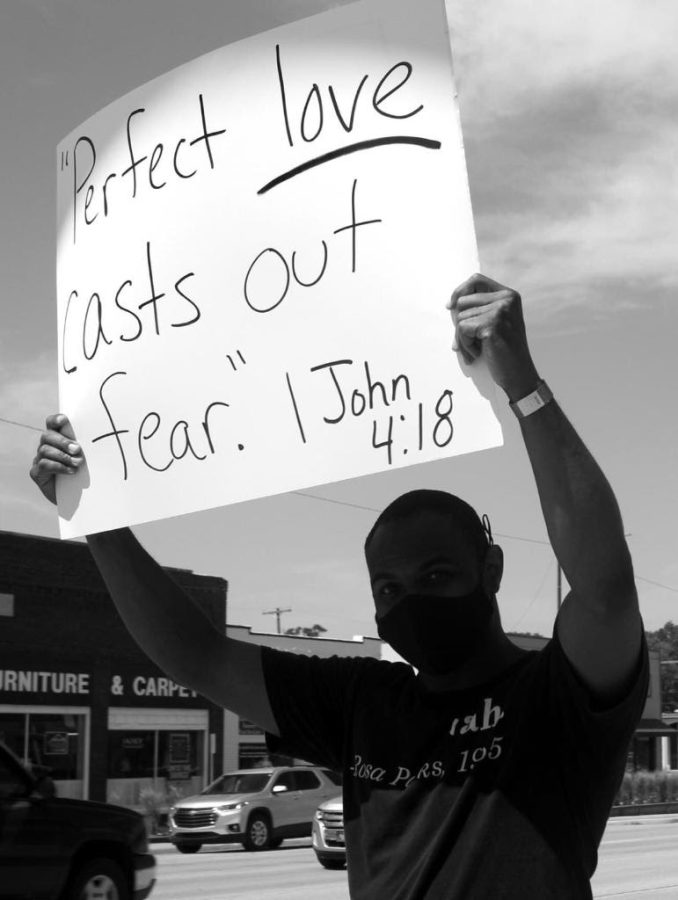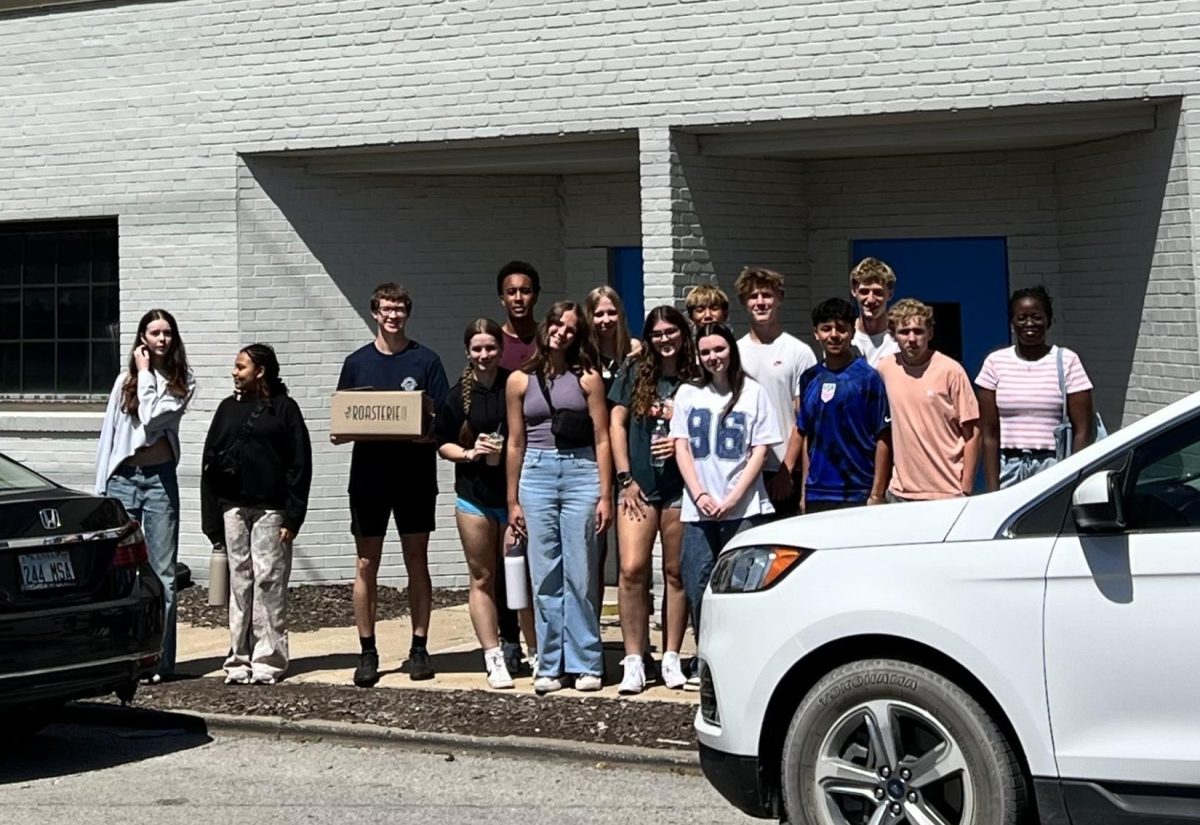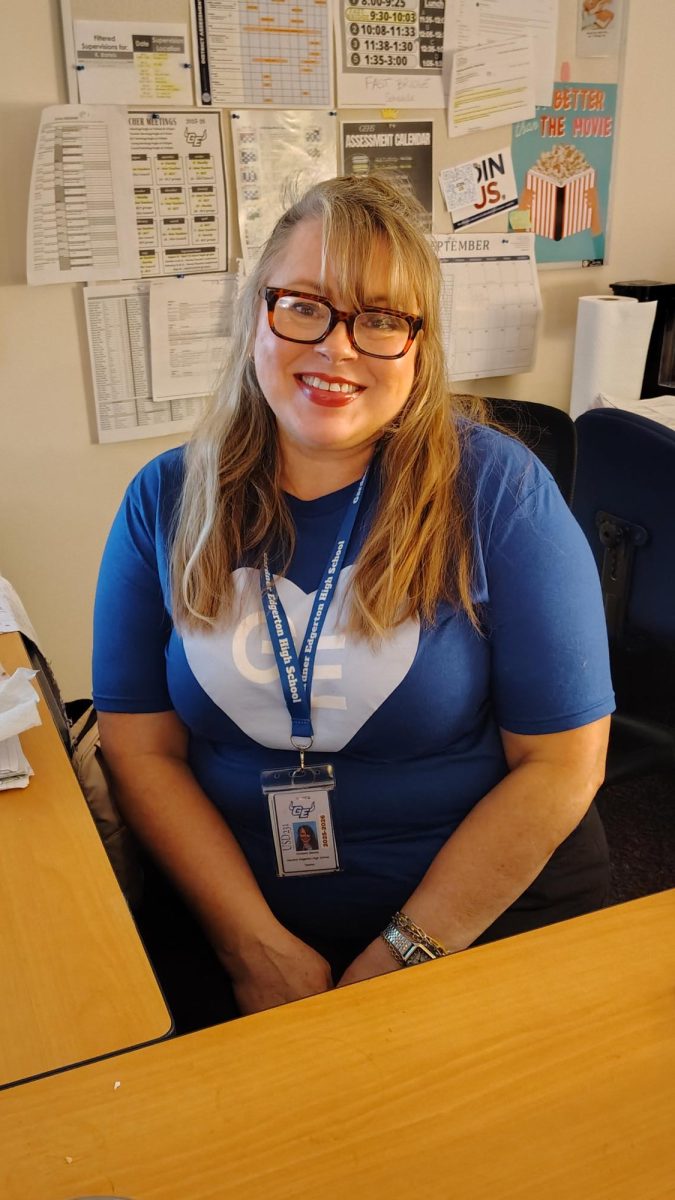Close To Home: A Melanated Opinion On Racism
Micheal Johnson holds a sign in a peaceful protest down Main Street (photo credits to Christine Johnson).
Feb 23, 2023
What does it mean to be black? Is it simply a higher percentage of melanin present in one’s skin? Is it a culture, a statement, or a riot? Furthermore, what place do biracial people have in that?
I, Myles Johnson, am biracial. I have a white mother and a black father. So what do I click when I come across the drop-down menus on surveys that ask for my ethnicity?
Living in Gardner, Kansas as a person of color, no matter what culture I belong to, I am not viewed as caucasian. Besides having a brown sugar-ish complexion, my hair is my definingly “black” feature. Even black people used to ask me if my afro was real. And I used to think it was funny, but now I see how problematic that question can be.
Here’s the deal: I have been told I am so white I can only celebrate half of Black History Month and I am so black I don’t show in dark pictures. My white friends think it is funny when comparing their so-called “tan” to my pale, winter tone and my black coworkers tease me about my “colonizing heritage”.
Since I was a kid, it has been a cold hard fact that my mother, the typical “hair stylist” in a nuclear family, did not have a clue as to how to deal with her oldest child’s thick ‘fro. It didn’t help that my father had been shaving his head for years.
My curls are between the “4A” and “4B” hair types. This means I have extremely porous hair with enough volume that every black hairstylist I’ve ever consulted with had the same reaction, “Wow, you have so much hair!”
I struggled with a lot of internalized racial bias in my youth because no one had hair like me. The number of black kids my age at my middle school was so little I could name them all off the top of my head.
For the longest time, I hated my hair and how my mother attempted to style it. By the time I turned twelve, she was so sick of the complaints she told me to do it myself. After about a thousand YouTube videos and various research, I kind of figured it out.
Thank God, my mother did not give in to the relaxer.
When I finally made it to the slightly wider world of high school, all of the black kids knew each other. They all had stunning skin in shades darker than mine, and they all looked right through me. The in-between was suffocating.
A part of me loves Black History Month, and another part hates that we need it. An even bigger conflict is all of the jokes we make in its name; the jokes about being black in general.
I hear “hate crime” in teasing jabs and “be careful” in a smile as two people of color part ways. Black people at this school are an even smaller minority than the average high school, which infuses those words with a deeper meaning. I try to keep my attitude toward this stuff light, but black people continuously get hurt when the world gives us a false sense of security. And we’re assumed to be barbaric.
The news likes to discuss the “glass ceiling” when it comes to income and people being sent home from work due to their hairstyle, but racism is not that obvious in our everyday lives. The “if you get pulled over” or “going out at night” talks are common discussions in my household. If you walk down the street here, you do not witness police brutality but you have learned to fear the police all the same. It is a silent protest to exist in this little town in the midwest.
What I guess I am trying to say in the spaces between my words is that being biracial is not a silencing label in a conversation about race. And conversations about race need to happen more often.
I truly wonder when race will stop being a foundation for bias. It should be grounds for celebration and a platform for discussion, and that’s about as far as society needs to move.
Let us, the people (all the people) have representation and respect. That’s it.






